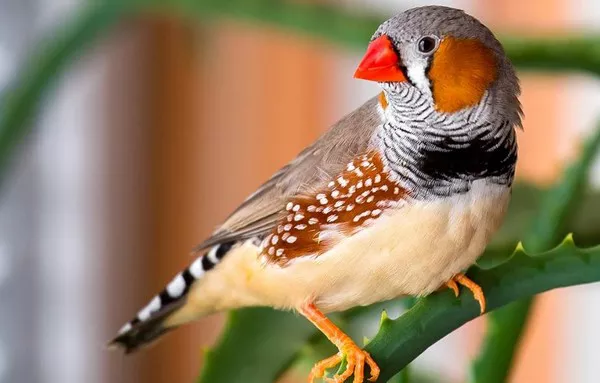The Airedale Terrier is often referred to as the “King of Terriers,” thanks to its impressive size, strong personality, and history as a versatile working dog. While the breed’s intelligence and charm make it a beloved companion, potential dog owners often wonder: how long can they expect to have their Airedale by their side? Understanding the life expectancy of an Airedale Terrier involves looking at various factors such as breed characteristics, health considerations, lifestyle, and the care the dog receives throughout its life.
In this article, we will take a deep dive into the life expectancy of an Airedale Terrier, providing detailed insights into their lifespan, common health issues, and how you can help ensure your Airedale lives a long, happy life. Let’s explore the details.
What Are the Airedale Terrier
The Airedale Terrier is the largest of the terrier breeds, known for its intelligence, loyalty, and energetic personality. Historically, Airedales were bred to hunt, herd, and even serve as police or military dogs during the world wars. With their robust build and strong work ethic, Airedales were prized for their ability to handle difficult tasks.
Airedales are typically friendly and get along well with families and other pets, although their independent nature can sometimes make training a bit challenging. They are highly social dogs, requiring regular mental and physical stimulation to remain content.
On average, an Airedale Terrier can live between 10 to 13 years, though some may live even longer depending on various factors like genetics, lifestyle, and overall health care.
Factors That Affect the Life Expectancy of an Airedale
When discussing the life expectancy of any dog breed, there are numerous factors that play a role in determining how long they will live. These include genetics, diet, exercise, environmental conditions, and healthcare.
1. Genetics and Breeding
The genetic makeup of an Airedale has a significant impact on its health and life expectancy. Like many breeds, Airedales can inherit certain genetic conditions from their parents, which may shorten their lifespan if not properly managed. Selecting a responsible breeder who tests for common hereditary issues can help reduce the risk of genetic diseases.
Good breeding practices also ensure that puppies are born healthy and free from common defects that could affect their lifespan. When looking for an Airedale, always seek breeders who prioritize health over appearance and use genetic testing to screen for diseases.
2. Diet and Nutrition
Proper nutrition is one of the most important factors in determining how long an Airedale will live. Like humans, dogs need a balanced diet to maintain their energy levels, keep their body strong, and support healthy organs. A high-quality dog food that meets all of the nutritional requirements for an Airedale’s size, age, and activity level is essential.
Feeding an Airedale a balanced diet helps prevent obesity, which is a common issue in many dog breeds and can significantly shorten their life expectancy. Obesity can lead to a range of health problems, including joint issues, heart disease, and diabetes, all of which could affect the Airedale’s lifespan.
Additionally, portion control is vital. Overfeeding can be just as harmful as underfeeding. Consult with your veterinarian to create a feeding plan tailored to your Airedale’s needs.
3. Exercise and Physical Activity
Airedales are highly energetic dogs that require regular physical exercise to stay healthy and happy. Insufficient exercise can lead to obesity and other health complications, which can shorten an Airedale’s life expectancy. Regular physical activity, such as walks, playtime, and opportunities to run, is essential to keeping an Airedale in top condition.
While Airedales do well in many types of activities such as agility training, obedience, or even playing fetch, they can also enjoy more relaxing walks around the neighborhood or playing in a backyard. Consistency in daily exercise routines is key to supporting their overall health.
4. Healthcare and Veterinary Visits
Routine veterinary care is essential to the longevity of any dog. Regular checkups with a vet will help detect any underlying health conditions early and manage them before they become serious. Vaccinations, flea and tick control, and heartworm prevention should be maintained throughout the dog’s life.
Older Airedales may need more frequent visits to the vet, especially for common aging issues such as arthritis, dental disease, and vision problems. Being proactive in managing these conditions can help extend your Airedale’s lifespan.
5. Environmental Factors
The environment in which an Airedale lives also affects its life expectancy. Dogs that live in stressful or harsh conditions may have a higher likelihood of experiencing health problems or shorter lifespans.
A safe, calm, and loving environment is ideal for an Airedale’s well-being. Also, Airedales do best in homes with a yard where they can burn off energy. While they can live in apartments, they require more structured walks and outdoor time in these settings.
6. Mental Stimulation
While physical exercise is important, mental stimulation is equally essential for an Airedale’s well-being. Intelligent and independent, Airedales can become bored quickly if not given enough mental challenges. Boredom often leads to destructive behavior, which can result in stress, anxiety, and potentially shorter lifespans.
Interactive toys, puzzles, and activities like obedience training or agility courses can provide the mental stimulation Airedales need to stay content and healthy.
7. Spaying or Neutering
Spaying or neutering your Airedale may help prevent certain health problems, such as uterine infections or prostate issues, which can negatively impact a dog’s lifespan. There are also behavioral benefits, as neutered or spayed dogs tend to be less aggressive and less likely to roam, which reduces the risk of accidents or injuries.
However, it’s essential to discuss the best time to spay or neuter with your veterinarian, as the procedure should be done when the dog is of the appropriate age to avoid health complications.
Common Health Issues in Airedale Terriers
Just like all dog breeds, Airedales are prone to certain genetic health issues that can influence their life expectancy. While not every Airedale will experience these conditions, being aware of them can help you monitor your dog’s health and seek early treatment if necessary.
1. Hip Dysplasia
Airedales, like many larger breeds, can develop hip dysplasia, a condition where the hip joint doesn’t develop properly, causing pain and arthritis. Hip dysplasia can lead to lameness and a reduced quality of life if not managed properly. Maintaining a healthy weight and providing joint supplements can help reduce the symptoms of this condition.
2. Progressive Retinal Atrophy (PRA)
PRA is a genetic condition that causes progressive vision loss in dogs. Over time, it can lead to blindness. While there is no cure for PRA, early detection and management can help improve the quality of life for affected dogs.
3. Hypothyroidism
Hypothyroidism occurs when the thyroid gland does not produce enough thyroid hormone, leading to a variety of symptoms such as lethargy, weight gain, and coat problems. With proper medication, the condition can be managed, and the dog can continue to live a normal life.
4. Allergies
Airedales are prone to various allergies, including food allergies and environmental allergies. These allergies can cause itching, skin infections, and digestive problems. Identifying and avoiding allergens, along with using appropriate medications, can help manage symptoms.
5. Cancer
Cancer is unfortunately a common cause of death in dogs, and Airedales are not immune. Certain cancers, such as lymphosarcoma, osteosarcoma, and hemangiosarcoma, are known to affect the breed. Early detection through regular veterinary visits and attention to unusual symptoms can sometimes improve the chances of effective treatment.
6. Ear Infections
Airedales have floppy ears that can trap moisture and dirt, making them prone to ear infections. Regular cleaning of the ears can help prevent this common issue. If an infection occurs, it’s crucial to treat it promptly to avoid more severe complications.
7. Dental Disease
Like all dogs, Airedales are susceptible to dental issues, including gum disease and tooth decay. Regular brushing and annual dental cleanings can help prevent these issues and contribute to their overall health and longevity.
How to Extend the Life of an Airedale Terrier
While you can’t control all of the factors that affect your Airedale’s life expectancy, there are many things you can do to help ensure your dog lives a long, healthy, and fulfilling life. Here are a few tips:
Regular Veterinary Checkups: Schedule regular veterinary checkups to ensure that your Airedale is healthy and to catch any potential health problems early.
Proper Nutrition: Feed your Airedale a high-quality, balanced diet tailored to its age, size, and activity level. Avoid overfeeding and monitor your dog’s weight regularly.
Exercise: Provide your Airedale with daily physical and mental exercise. Regular walks, playtime, and activities will keep your dog fit and engaged.
Weight Management: Keep your Airedale at a healthy weight to prevent obesity-related health problems. Your vet can help you develop a weight management plan.
Dental Care: Brush your Airedale’s teeth regularly and provide dental chews or toys to help maintain oral health.
Socialization and Mental Stimulation: Expose your Airedale to new experiences, people, and environments. Provide interactive toys and puzzles to keep its mind sharp.
Early Detection of Health Issues: Be vigilant about any changes in your dog’s behavior, appetite, or physical condition. If you notice anything unusual, contact your vet immediately.
Conclusion
In conclusion, the average life expectancy of an Airedale Terrier is between 10 to 13 years, although some dogs may live beyond this range with the right care and attention. By providing your Airedale with proper nutrition, regular exercise, routine veterinary care, and a stimulating environment, you can help extend their lifespan and ensure they remain healthy and happy throughout their life.
Airedales are a remarkable breed with a long history of versatility, intelligence, and companionship. With the right care, your Airedale can be a loyal friend for many years to come.
Related Topics:





















